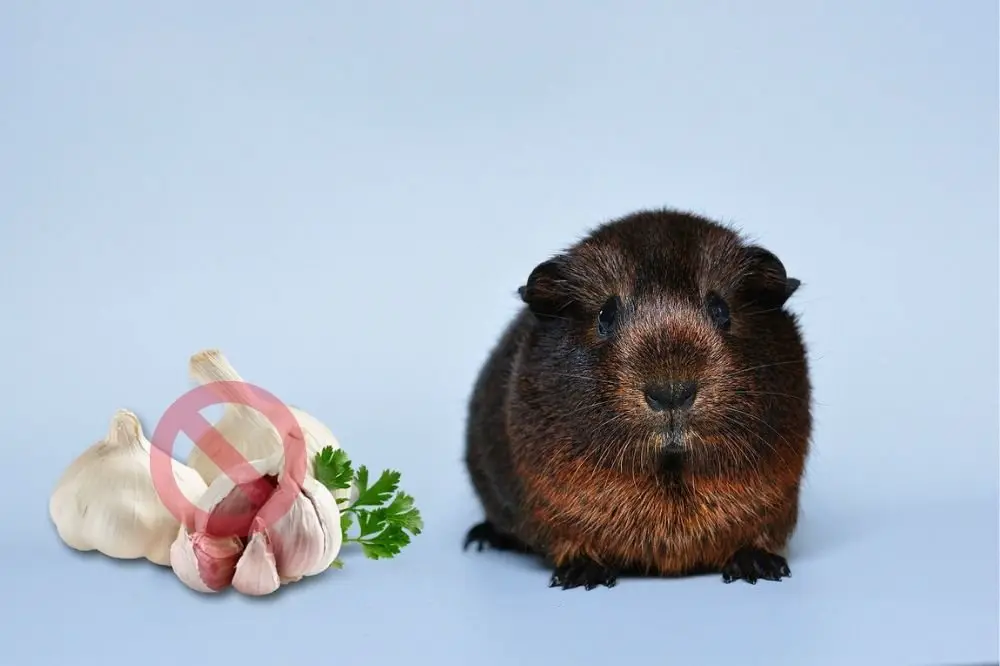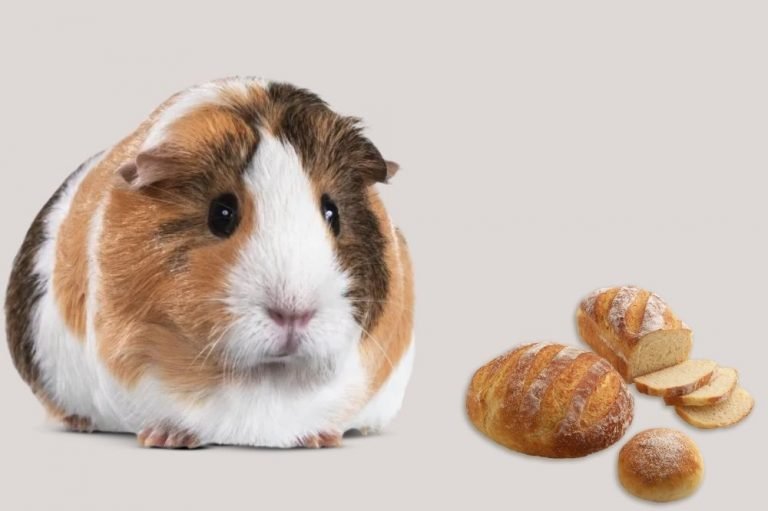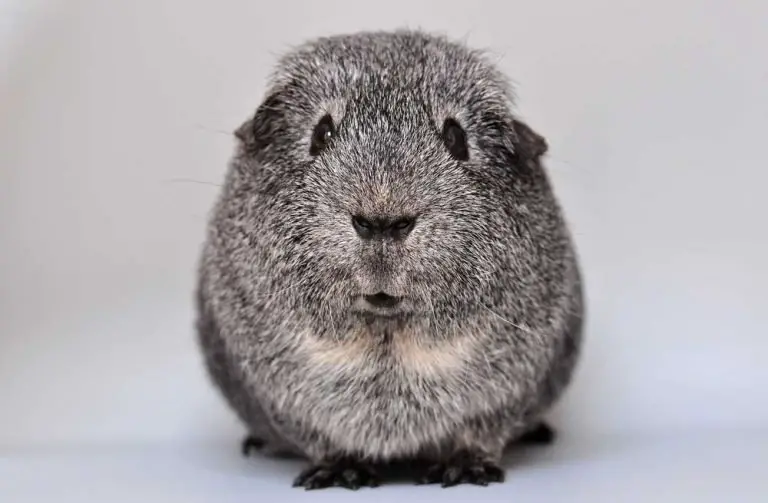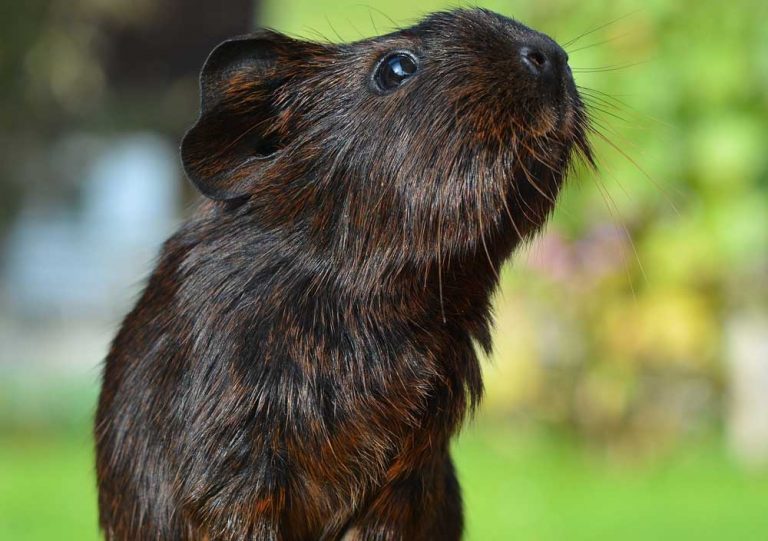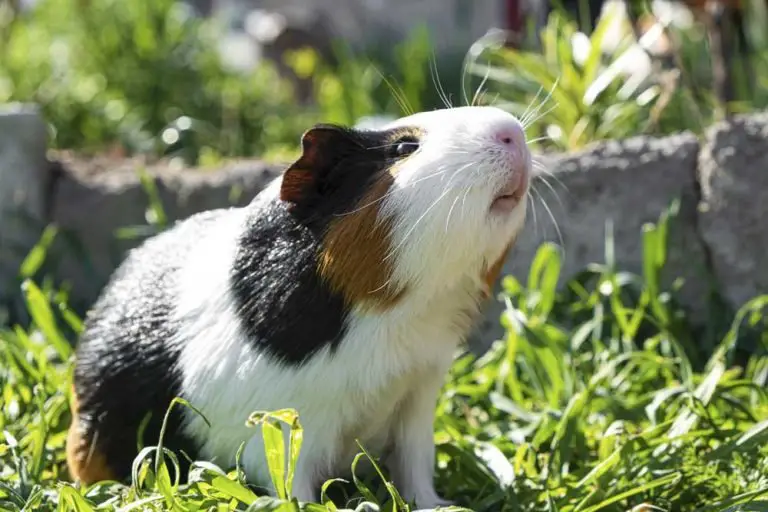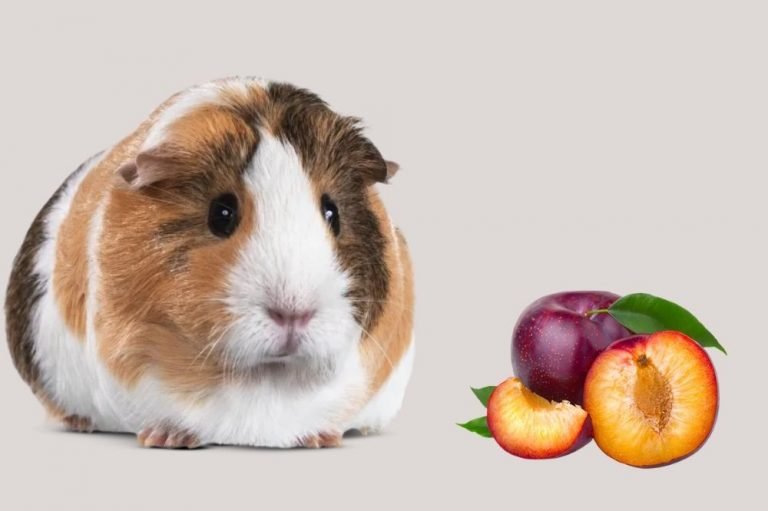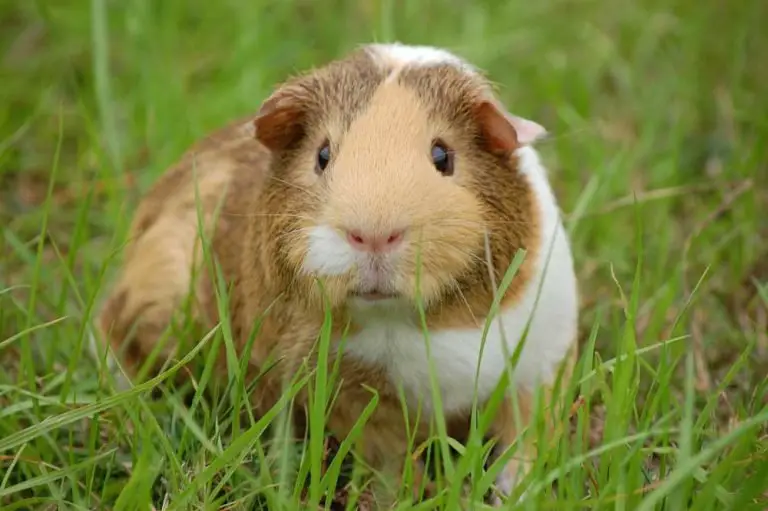Can Guinea Pigs Eat Garlic?
Guinea pigs are small animals with a big appetite. They eat a lot and they’ll eat anything you give them.
Garlic on the other hand is a superfood with lots of healthy benefits and good nutrients. It is filled with antibiotic properties and can actively kill parasites.
This may make you want to feed it to your pet so that they may get all these benefits. But is garlic safe for them to eat? Let’s find out.
Can guinea pigs eat garlic?
Guinea pigs should never be fed garlic because it’s poisonous for them. Not only garlic, but all other bulb foods like onions, chives and leeks are not safe for guinea pigs. Garlic contains disulfides which are a molecule compound that contains sulfur and it’s highly toxic for guinea pigs. It also has high contents of calcium, phosphorus and a fraction of fat content making it unsafe for feeding guinea pigs.
Why is garlic toxic for guinea pigs
Garlic may be highly beneficial for humans as it’s packed with many healthy nutrients but it’s highly toxic for guinea pigs. Below are the reasons why you should never feed garlic to your guinea pig.
Presence of sulfuric compounds
Garlic contains sulfuric elements like disulfide which are poisonous for guinea pigs. They damage your pet’s red blood cells and negatively affect their health.
High contents of calcium and phosphorus
Calcium and phosphorus are important nutrients for guinea pigs, mostly the young growing ones. They help in the development of strong bones.
However when they are in high quantities they become harmful to them. High phosphorus leads to slowing down of their growth and shortening of their survival rates.
Too much calcium brings about kidney and bladder stones that make urination painful and sometimes bloody.
Digestion problems
Garlic may bring about digestion problems in guinea pigs. For instance, the presence of high calcium and phosphorus is harmful to the stomach and digestive tract which are very delicate.
Guinea pigs may have problems digesting these nutrients in high amounts which may bring about pain in the stomach and indigestion issues.
Allergic reactions of feeding garlic to guinea pigs
Guinea pigs will have adverse reactions to eating garlic and if you notice the following you should seek a vet right away.
- Eyes and nose may become watery
- Diarrhoea.
- Restlessness.
- Showing lethargy and weakness.
- Itchy eyes and body.
- Difficulty in breathing.
- Increased heart rate.
- Painful urination.
- Excessive drooling
How to prevent garlic poisoning
Your pet wouldn’t know what is poisonous and what is not. It’s your responsibility to ensure that you keep them protected and safe from things that would harm them.
Do not feed it
The biggest prevention is to avoid garlic altogether. Never feed garlic to your guinea pig because they will eat it not knowing that it’s poisonous.
Keep it away
If you use garlic a lot in your meals you should ensure that you keep it far away to prevent your pet from accidentally ingesting it.
Your pet is naturally curious and they will constantly chew on things they come across. They may come across garlic as they roam around the house when outside their cage and ingest it. So keep it far away.
Fence your garlic farm
If you have a garlic garden in your yard where you usually let out your pet for exercise, fence it using chicken wire. This will keep the guinea pig from getting in and munching on some poisonous garlic bulb.
Provide a balanced diet
Healthy guinea pigs that eat a balanced diet and have good nutrition will be capable of strongly fighting against poisonous foods due to their strong immune system. They may not be able to stop the effects of eating poison, but they will be able to handle it much better compared to weak guinea pigs whose immune system cannot fight well.
What happens if a guinea pig eats garlic
Sometimes it can happen that your guinea pig accidentally eats garlic. The poison may bring serious effects to your pet so seek a vet’s help immediately.
Can guinea pigs eat cooked garlic?
Guinea pigs should not be fed cooked food. Garlic, whether cooked, boiled or raw will still contain the same components.
There will be no difference in its poisonous nature so do not assume that it’s safer as it’s still toxic.
Guinea pigs should not be fed garlic bread either. Simply avoid anything containing garlic and feed other alternatives like herbs.
What should you avoid feeding guinea pigs
There are many foods that you should never feed your guinea pigs to avoid making them sick or poisoning them. Foods like:
- Grains and seeds like sunflower and oats.
- Fatty foods like avocado.
- Dairy products like milk and yogurt.
- High starchy foods like potatoes.
The list is big and you should be very careful with what you offer your adorable pet. Some may be good but have parts that are toxic e.g apples that are highly nutritious but contain seeds that are harmful to guinea pigs.
What should you feed guinea pigs
Guinea pigs should be fed a balanced diet to keep them healthy and strong. You should also ensure that you offer a variety of foods to avoid boring your pet with the same old foods.
You should always provide:
- Hay – hay should make up the biggest percentage of guinea pig food as it’s vital for digestion and wearing out of their ever-growing teeth.
- Veggies – fresh veggies and greens are highly nutritious and these herbivorous pets enjoy veggies.
- Fruits – fruits should be fed once or twice a week if high in sugar but they are great treats that your pet will always look forward to.
- Herbs – herbs have a strong smell and flavour that many guinea pigs will enjoy. Try basil, coriander, and mint.
- Water – water is basic and should be provided and changed on a daily basis. Make sure that it’s enough with two or more bottles available in case of leakages.
Conclusion
Bulb foods like garlic and onions are poisonous to guinea pigs. You should avoid feeding them to your pets.
Instead, opt for hay, grass, fresh veggies, pellets, fruits and herbs then provide enough water.

